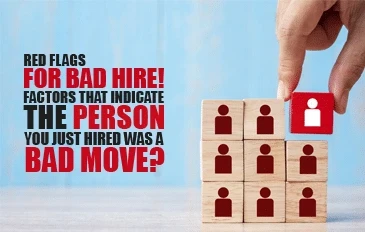Michael DeSafey | Executive Recruiter and HR Professional
Effective Crisis Management For Construction Staffing
Whether it’s a global pandemic, economic downturn, natural disaster, or supply chain disruption, unforeseen events can have significant implications for construction projects and workforce management. Effective crisis management is essential for construction staffing agencies to mitigate risks, maintain business continuity, and safeguard the well-being of employees and clients.
To understand crisis management in construction staffing, let explore the key strategies for mitigating disruptions, and learn practical tips for navigating crises effectively.
Challenges of Crisis Management in Construction Staffing:
Crisis management in construction staffing presents several unique challenges, including:
- Dynamic Nature of Construction Projects:
Construction projects are inherently complex and dynamic, involving multiple stakeholders, tight deadlines, and intricate supply chains. Disruptions such as material shortages, regulatory changes, or labor disputes can have cascading effects on project timelines, budgets, and resource allocation, requiring swift and coordinated responses from staffing agencies.
- Reliance on Skilled Labor:
The construction industry relies heavily on skilled labor to execute projects successfully. Disruptions to the labor supply, whether due to health crises, immigration policies, or demographic shifts, can pose significant challenges for construction staffing agencies in sourcing, recruiting, and retaining qualified workers with the necessary expertise and certifications.
- Volatile Economic Environment:
The construction industry is sensitive to economic fluctuations, with demand for construction services influenced by factors such as GDP growth, interest rates, and government spending. Economic downturns, recessions, or market downturns can lead to project cancellations, budget cuts, and reduced hiring activity, requiring staffing agencies to adapt their strategies and operations accordingly.
- Health and Safety Concerns:
Health and safety considerations are paramount in the construction industry, particularly in the context of global health crises such as pandemics or disease outbreaks. Construction sites present unique challenges for maintaining health and safety protocols, including physical distancing, personal protective equipment (PPE), and sanitation measures, necessitating proactive risk management and contingency planning by staffing agencies.
Strategies for Mitigating Disruptions:
To effectively manage crises and mitigate disruptions in construction staffing, consider the following strategies:
- Develop a Comprehensive Crisis Management Plan:
Create a comprehensive crisis management plan that outlines roles, responsibilities, and protocols for responding to various types of crises. Identify potential risks, vulnerabilities, and scenarios that may impact construction projects and workforce management, and establish clear communication channels, escalation procedures, and decision-making frameworks to facilitate a coordinated response.
- Diversify Talent Pipelines:
Diversify talent pipelines and recruitment strategies to reduce reliance on specific geographic regions, industries, or demographic groups. Proactively identify alternative sources of skilled labor, including apprenticeship programs, vocational schools, military veterans, and underrepresented communities, to ensure resilience and flexibility in the face of labor shortages or disruptions.
- Strengthen Supplier and Vendor Relationships:
Build strong relationships with suppliers, vendors, and subcontractors to ensure continuity of materials, equipment, and services during crises. Maintain open lines of communication, collaborate on risk assessment and mitigation strategies, and establish contingency plans for alternative sourcing, logistics, and delivery arrangements to minimize disruptions to construction projects.
- Implement Technology Solutions:
Leverage technology solutions such as workforce management software, project management platforms, and communication tools to streamline operations and facilitate remote collaboration during crises. Implement digital recruitment and onboarding processes, virtual job fairs, and online training programs to adapt to remote work environments and maintain productivity while ensuring compliance with health and safety regulations.
- Prioritize Health and Safety Protocols:
Prioritize health and safety protocols to protect workers, clients, and communities during health crises or emergencies. Implement robust infection control measures, provide appropriate PPE and sanitation facilities, and educate employees on preventive measures and best practices for minimizing the risk of exposure to infectious diseases or workplace hazards.
- Communicate Transparently and Proactively:
Communicate transparently and proactively with employees, clients, and stakeholders about crisis management efforts, updates, and developments. Provide regular updates, share relevant information, and address concerns and questions in a timely manner to build trust, maintain morale, and foster a sense of solidarity and resilience within the organization.
- Maintain Financial Resilience:
Maintain financial resilience by diversifying revenue streams, reducing overhead costs, and building contingency funds to weather economic downturns or financial crises. Monitor key financial indicators, such as cash flow, profitability, and liquidity, and develop financial projections and scenario analyses to assess the potential impact of crises on business operations and performance.
Practical Tips for Navigating Crises Effectively:
In addition to the strategies outlined above, consider the following practical tips for navigating crises effectively in construction staffing:
- Stay Informed and Adaptive:
Stay informed about emerging threats, developments, and trends that may impact construction projects and workforce management. Monitor relevant news sources, government advisories, and industry publications, and remain adaptive and agile in responding to changing circumstances and evolving risks.
- Empower Employees and Teams:
Empower employees and teams to take initiative and make informed decisions during crises. Provide training, guidance, and resources to equip employees with the skills and knowledge needed to respond effectively to emergencies, communicate confidently, and collaborate across departments and functions to achieve common goals.
- Practice Scenario Planning and Simulation:
Practice scenario planning and simulation exercises to test crisis management protocols and identify areas for improvement. Conduct tabletop exercises, role-playing scenarios, and simulations to simulate various crisis scenarios, evaluate response strategies, and refine crisis management plans based on lessons learned and feedback from participants.
- Build a Culture of Resilience and Adaptability:
Build a culture of resilience and adaptability within the organization by fostering open communication, trust, and collaboration among employees. Encourage a growth mindset, embrace change as an opportunity for learning and innovation, and celebrate successes and milestones achieved through collective effort and teamwork.
- Seek External Support and Collaboration:
Seek external support and collaboration from industry partners, government agencies, and community organizations during crises. Collaborate on resource sharing, mutual aid agreements, and coordinated response efforts to address common challenges, pool expertise and resources, and build a stronger, more resilient community of stakeholders.
Crisis management is a critical aspect of construction staffing, requiring proactive planning, strategic decision-making, and effective communication to mitigate risks, ensure business continuity, and protect the well-being of employees and clients. With proactive risk management, adaptive leadership, and a culture of resilience, construction staffing agencies can overcome challenges, seize opportunities, and thrive in an ever-changing business environment.
Webuild Staffing Agency is a leading executive search and staffing agency dedicated to the construction, engineering and environmental industries. To learn more please visit: www.webuildstaffing.com












